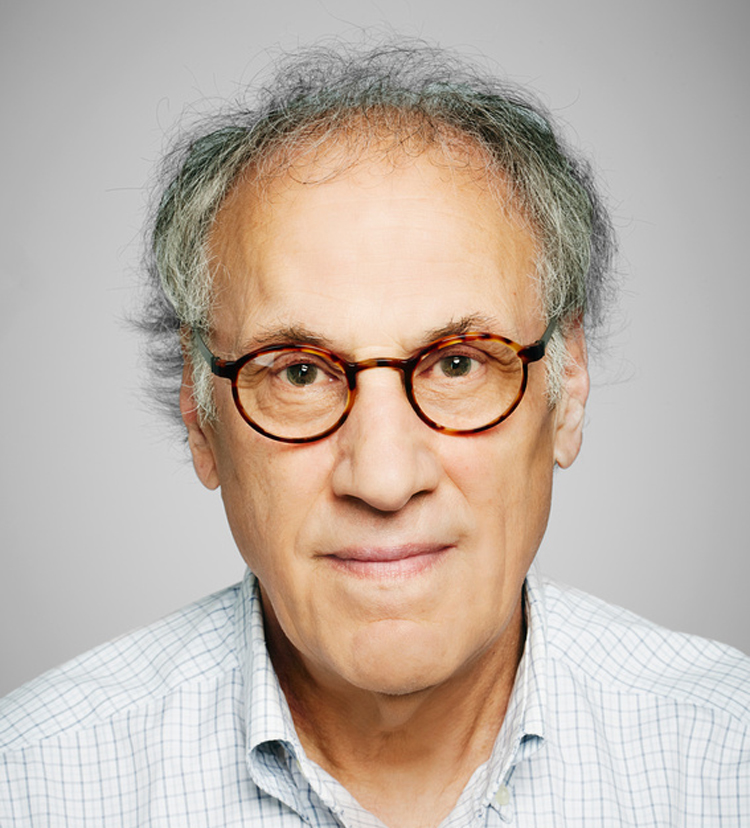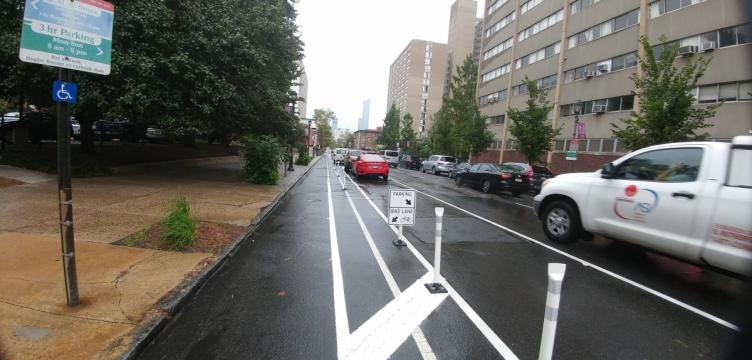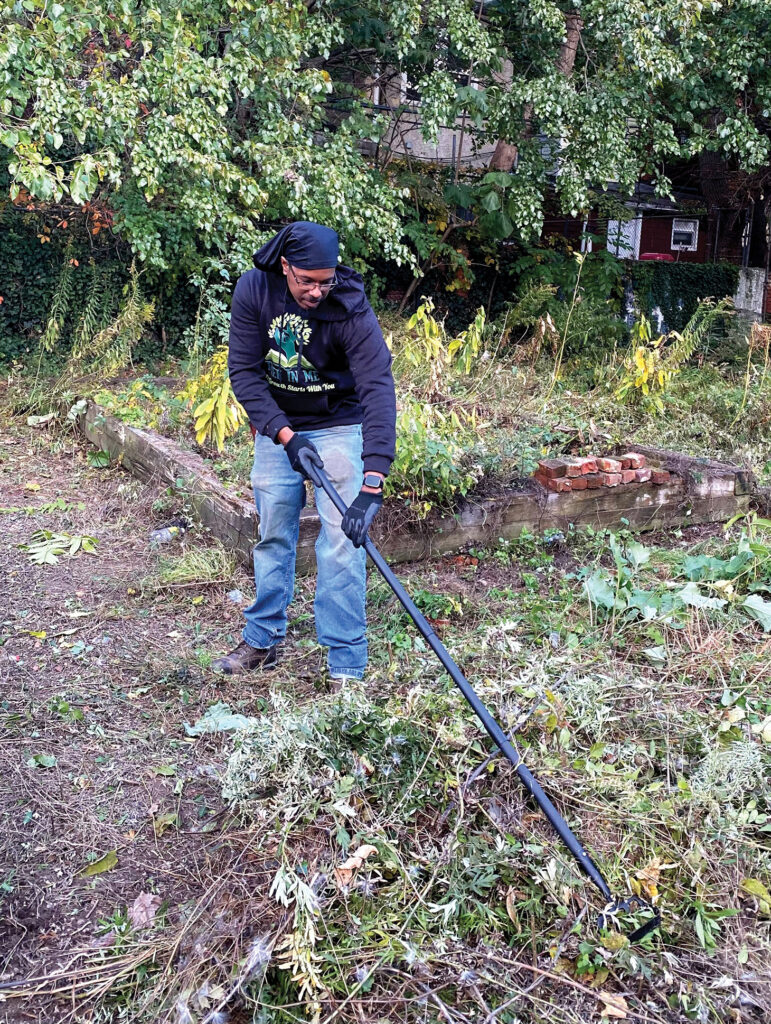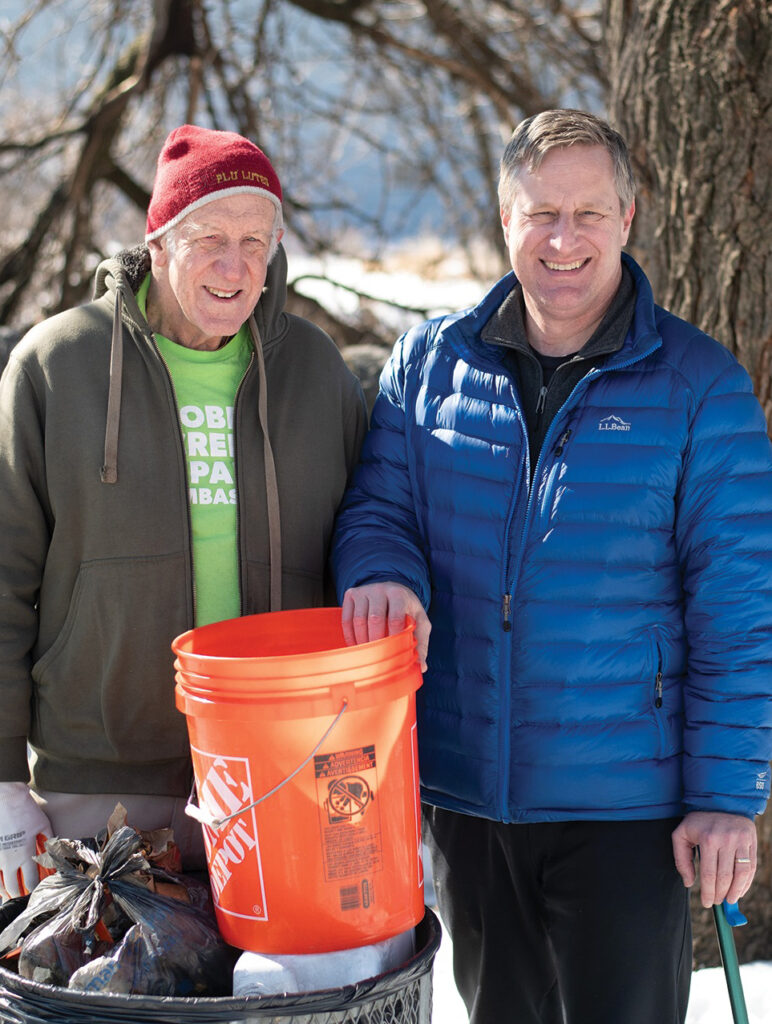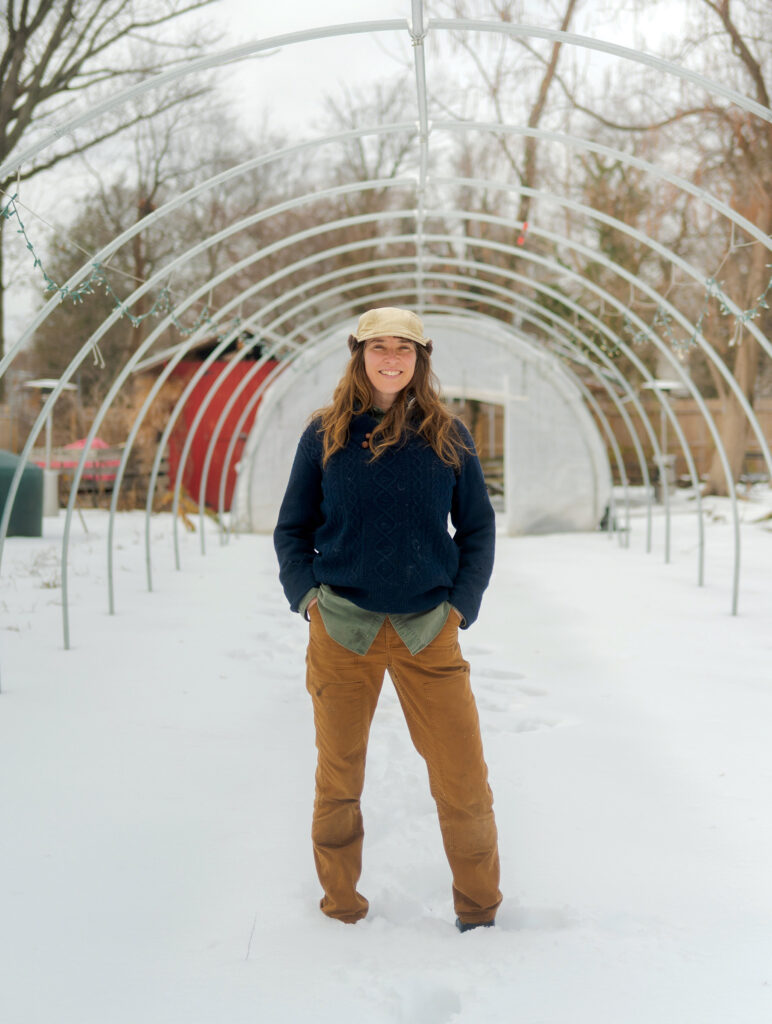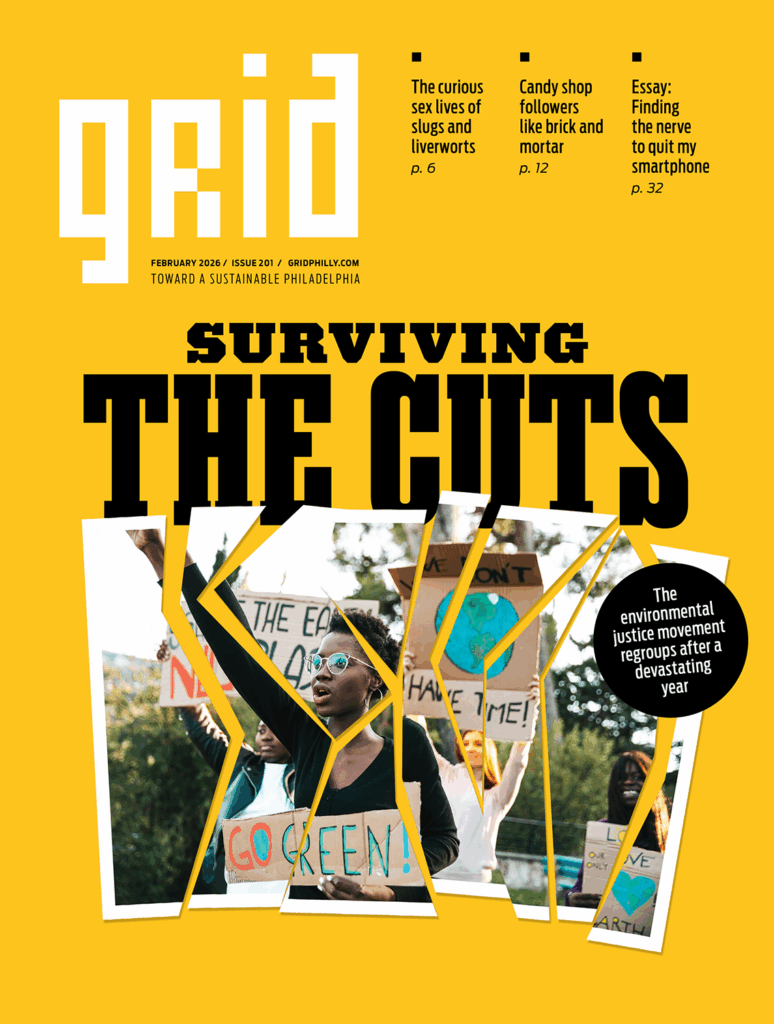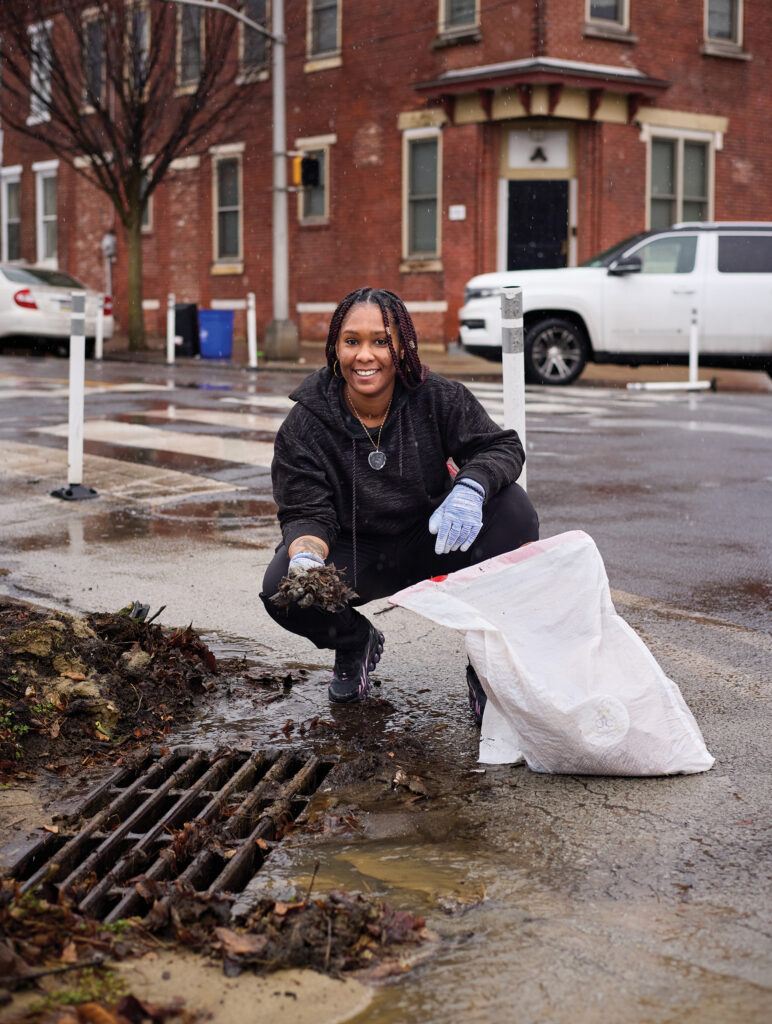portrait by Mark Likosky
“When I found myself back in my childhood neighborhood, ravaged by time, I set a course that—through guerilla gardening with children on crime-ridden parcels—has methodically proven that by reclaiming land and respecting human life, no matter how depressed, a community can recreate itself, catalyzing individual and community health.” — SW
It’s time to embrace the idea that communities can be transformed by people taking back the land. For the first 20 years of his career, Skip Wiener put to use dual Master’s degrees in science and landscape architecture in the private sector. But when he saw the state of the West Philadelphia neighborhood he grew up in, he knew he needed to give it some love, and he started by planting trees and crops with the neighbors.
In 1989, Wiener founded the Urban Tree Connection (UTC), which assists low-income urban communities in revitalizing their neighborhoods through gardening interventions. UTC believes that by transforming abandoned open spaces, which are often crime-ridden and strewn with trash, we can instead provide people with safe, beautiful places that inspire and promote positive human interaction, including growing healthy food together.
Wiener says he loves “working with the women of Haddington and letting them lead me to the projects that would be successful because they took ownership.” Empowering leaders in the community is a primary strategy of his work, and he also loves seeing the children of Haddington discover the world outdoors. He believes he’s been able to watch a generational shift over 10 years that has removed the stigma of farming. There is enough local good being grown to support the Neighborhood Foods Co-op, a farmers market and mini economic engine.
While much of the work has centered on the Haddington neighborhood, UTC is starting to branch out into adjacent neighborhoods and to the city of Chester. In addition to working with vacant lots, Wiener wants to bring the model to affordable housing. “We are replicating our social cohesion/farming model in Chester with the Chester Housing Authority, and discussing other public housing farming with the Philadelphia Housing Authority,” he says. “I would love urban farming to become the norm in public housing and be used as a powerful community revitalization, both physically and socially.”


